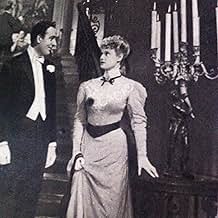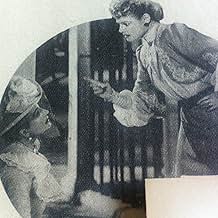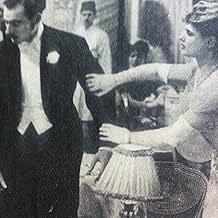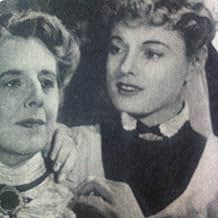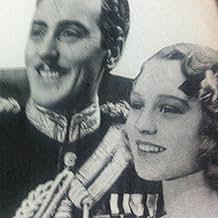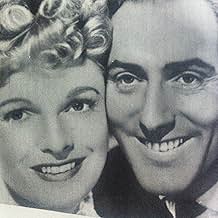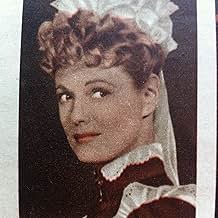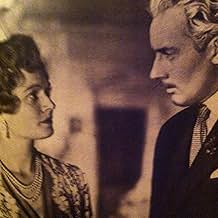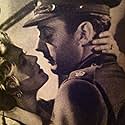Ajouter une intrigue dans votre langueThe fortunes of an upper-class British family are followed through three wars and four generations.The fortunes of an upper-class British family are followed through three wars and four generations.The fortunes of an upper-class British family are followed through three wars and four generations.
- Prix
- 2 victoires au total
Histoire
Le saviez-vous
- AnecdotesSir Edward Courtney and his son quote from Rupert Brooke's 1914 sonnet "The Soldier".
- Citations
Sir Edward Courtney: This is a new century Mother. Kate and I are going to start it together. And as soon as we can.
- Générique farfeluNew Year's Eve 1899, and the Courtneys of Curzon Street, in common with their class, were entertaining their staff at a Servants' Ball...
- ConnexionsFeatured in The Ultimate Film (2004)
Commentaire en vedette
It's Noel Coward's "Cavalcade" with 15 years added to it but without Noel Coward, and it's almost one war too much: the second world war passes by with a sigh, and they almost don't notice it.
What do you have instead of Noel Coward? Actually a lot of things. Formost is the brilliant musical score, dominated by Tchaikovsky's Pathétique symphony, which you first hear and attend together with Queen Victoria (who sleeps through it, and you only see her from the rear,) and which forms a kind of morosely moody background to the whole story. The score is actually composed by Anthony Collins, one of Britain's foremost conductors at the time, most famous for his epoch-making readings of Sibelius, and I didn't know he was a composer himself as well. The music is brilliant och fluent throughout, with excellent renderings of Strauss and the tunes of the periods. Michael's sister Mary once starts playing "On the Blue Danube" on the piano, and the story makes it develop into full orchestra, which is marvellously done.
Michael Wilding always makes an uplifting appearance, and Anna Neagle dances surprisingly well - her voice and mode of singing is perhaps a bit outdated today, but they both age admirably well. There are some very heart-rending scenes between them, especially during the first world war, but they dominate the film completely. The only other dame to importune is swiftly disposed of and is never heard of again.
What you lack is the wit and overwhelming pathos from Noel Coward's timeless film. There is practically no pacifism here at all, which is the eloquently dominating element of "Cavalcade".
So this is not a great film, but still very well worth watching and enjoying, especially for the wonderful rendering of the times before the first world war. There is no end to the generous lushness of the scenery here, which makes it very convincingly super romantic.
During the 1929 crisis there is an episode when the family is forced to sell their home, and they get a good price for it. This is pointed out by critics as a weak point, as they in the last minute decide not to accept the offer, but it's actually the contrary: a very important point made by Kathy, as she prefers enduring the ruin and keeping the family and home against any odds, even if they are impossible, which by challenging the impossibility they manage to overcome. It's perhaps the most important point of the film, underlining the paramount importance of keeping the family together by its main uniting factor the home.
What do you have instead of Noel Coward? Actually a lot of things. Formost is the brilliant musical score, dominated by Tchaikovsky's Pathétique symphony, which you first hear and attend together with Queen Victoria (who sleeps through it, and you only see her from the rear,) and which forms a kind of morosely moody background to the whole story. The score is actually composed by Anthony Collins, one of Britain's foremost conductors at the time, most famous for his epoch-making readings of Sibelius, and I didn't know he was a composer himself as well. The music is brilliant och fluent throughout, with excellent renderings of Strauss and the tunes of the periods. Michael's sister Mary once starts playing "On the Blue Danube" on the piano, and the story makes it develop into full orchestra, which is marvellously done.
Michael Wilding always makes an uplifting appearance, and Anna Neagle dances surprisingly well - her voice and mode of singing is perhaps a bit outdated today, but they both age admirably well. There are some very heart-rending scenes between them, especially during the first world war, but they dominate the film completely. The only other dame to importune is swiftly disposed of and is never heard of again.
What you lack is the wit and overwhelming pathos from Noel Coward's timeless film. There is practically no pacifism here at all, which is the eloquently dominating element of "Cavalcade".
So this is not a great film, but still very well worth watching and enjoying, especially for the wonderful rendering of the times before the first world war. There is no end to the generous lushness of the scenery here, which makes it very convincingly super romantic.
During the 1929 crisis there is an episode when the family is forced to sell their home, and they get a good price for it. This is pointed out by critics as a weak point, as they in the last minute decide not to accept the offer, but it's actually the contrary: a very important point made by Kathy, as she prefers enduring the ruin and keeping the family and home against any odds, even if they are impossible, which by challenging the impossibility they manage to overcome. It's perhaps the most important point of the film, underlining the paramount importance of keeping the family together by its main uniting factor the home.
- clanciai
- 4 juin 2017
- Lien permanent
Meilleurs choix
Connectez-vous pour évaluer et surveiller les recommandations personnalisées
Détails
- Date de sortie
- Pays d’origine
- Langue
- Aussi connu sous le nom de
- Kathy's Love Affair
- Lieux de tournage
- société de production
- Consultez plus de crédits d'entreprise sur IMDbPro
- Durée2 heures
- Couleur
- Rapport de forme
- 1.37 : 1
Contribuer à cette page
Suggérer une modification ou ajouter du contenu manquant

Lacune principale
By what name was The Courtneys of Curzon Street (1947) officially released in Canada in English?
Répondre
